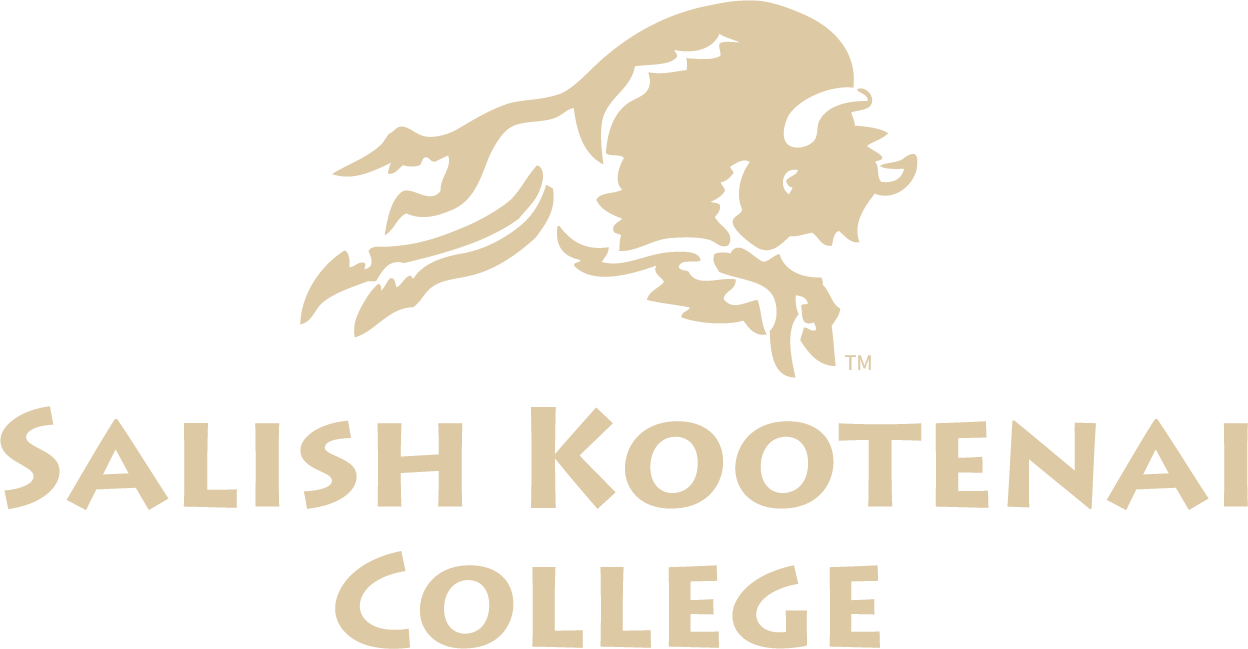Mission
The Mission of Salish Kootenai College is to provide quality post-secondary educational opportunities and support for American Indians, locally and from throughout the United States, to achieve their academic and career goals. The College will perpetuate the cultures of the Séliš, Ksanka, and Qlispe’ peoples. The College will impact its community through service and research..
Vision
Salish Kootenai College aspires to be the pre-eminent educational center of excellence for American Indian Students, grounded in the cultures of the Séliš, Ksanka and QÍispé people of the Flathead Nation. The college will empower students to improve the lives of their families and communities through research, leadership and service.
Core Themes
Access and Success
Provide Access to Higher Education for American Indians
Quality Education
Maintain Quality Education for Workforce or Further Education
Cultural Perpetuation
Perpetuate the Cultures of Confederated Salish and Kootenai Peoples
Research and Service
Provide research and service that promotes community health and wellbeing, preservation of cultural and natural resources, and civic participation for the Flathead Reservation and other communities.
The Four Cs
Communication:
Communication is clear, respectful sharing of information guided by critical thinking and mindful consideration. Skilled communicators connect with people through spoken and written words that effectively convey content knowledge and individual values.
Critical thinking:
Critical Thinking is a self-directed process for refining thought. Critical thinkers validate and reflect on their thinking, consider the validity of information sources, context, and multiple perspectives, and apply both logic and traditional understandings to make decisions.
Citizenship:
Citizenship includes informed and committed participation in the life of one's community at the local, national, and global levels. Citizens recognize and address community issues, apply ethical and legal knowledge and reasoning, and respect the rights of others.
Cultural Awareness:
Cultural Awareness at SKC emphasize sustaining and perpetuating the living cultural traditions of the Séliš, Qĺispé, and Ksanka peoples. This includes the tangible forms [places & artifacts] and intangible forms [language and ceremony]. Understanding these traditions helps students recognize the importance and necessity of cultural traditions to all people and their roles in intercultural relations.
